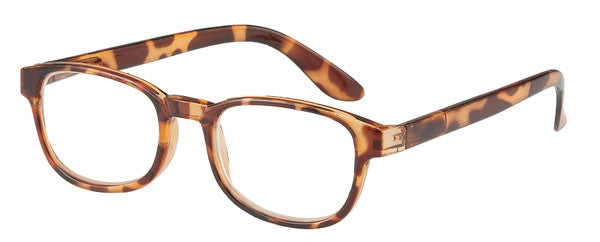15 Facts About Your Eyes that You Really Should Know (Part II)
Continuing our theme from our last blog post, here are five more eye-opening facts about taking care of your vision.

6. Irritated Eyes Need Attention
Irritated eyes may signal an infection. Home treatment with eye drops may help a very short-term irritation, but do not ignore the problem if it continues past the first dose. Of particular concern is the use of steroid eye drops, which may relieve discomfort and redness but can mask symptoms of a problem that threatens your eyes. Be very careful, take eye discomfort seriously, and call your doctor right away.
Pinkeye is a common eye infection that usually clears up quickly on its own or with appropriate treatment. But be aware that the disease can be bacterial or viral, and the wrong treatment can spell serious problems that damage your vision. A simple test will tell the difference and ensure you receive the proper care.
While we are on the subject of infections, we should mention that sleeping in extended-wear contacts increases your chances of infection tenfold. Take them out before bed!
7. Eyes That Are Not Irritated Need Consideration, Too
Some eye diseases are not accompanied by irritation; some have no symptoms until they reach an advanced stage. A yearly exam by an ophthalmologist is necessary to screen for eye diseases, some of which, including glaucoma and macular degeneration, can blind you. A traumatic blow to your head can also result in vision loss, so if you have been injured, be alert for vision problems that suggest that you need to see a doctor. Some illnesses are associated with higher risk for eye problems. For example, hypertensive retinopathy, which occurs in people with high blood pressure, can cause blindness. This is why your eye doctor may ask you questions about your overall health.
8. Eyeglasses Are Not Addictive
People diagnosed with myopia or other correctable vision problems sometimes hesitate to get glasses out of a fear of becoming dependent upon eyeglasses. This is a misconception. If you need glasses, they help you see better until you take them off, and then you see just as badly as before, but not worse. This holds true for all types of corrective lenses: reading glasses, distance glasses, and glasses for astigmatism.
9. “Don’t Look at the Sun, You’ll Go Blind!”
You have heard this advice, and you have probably noticed that looking naked-eye toward the sun briefly, as happens in the normal course of things (admiring a sunset, or driving west in the evening), won’t blind you. This is because your pupils contract to keep most of the light out. But two ways of looking at the sun can and do cause blindness. The first is with magnification: viewing the sun through binoculars or a telescope is very dangerous, as the lens concentrates the sun’s light. Never look at the sun through a telescope without highly specialized sun filters, and be very careful with binoculars to keep your view away from the sun.
Another sun danger is looking at a partial eclipse through an inadequate filter. People lose their sight by looking at eclipses through dark glass or other materials that seem safe because they screen much of the visible light—but they let in UV light, which you can’t see. NASA warns that sunglasses do not make eclipse viewing safe!
Unsafe filters include color film, some non-silver black and white film, medical x-ray films with images on them, smoked glass, photographic neutral density filters, and polarizing filters. Solar filters designed to thread into eyepieces (which are often sold with inexpensive telescopes) are also dangerous.
 NASA’s website advises viewers that only #14 welding glass, and a few other specialized materials, allow safe direct viewing of the sun.
NASA’s website advises viewers that only #14 welding glass, and a few other specialized materials, allow safe direct viewing of the sun.
10. Keep Your Specs Spic and Span
The little eyeglass cloth that comes with new eyeglasses is not just handy; it is the best cloth to use. If you do not have it nearby when you need to wipe your glasses clean, by no means use a napkin or paper towel, which will scratch the coatings and potentially the lens itself. Any microfiber cloth will do a great job and avoid scratches. A drop of dish soap with warm running water also works wonders.
Shop I Heart Eyewear Today for Great Looking Reading Glasses
At I Heart Eyewear, you’ll find a great selection of eyewear at affordable prices. Most of our reading glasses are under $20, so they fit perfectly into any budget! Check out our latest eyeglass frames for men, women, and children, where you can sort by type, shape/style, and even color and pattern!






